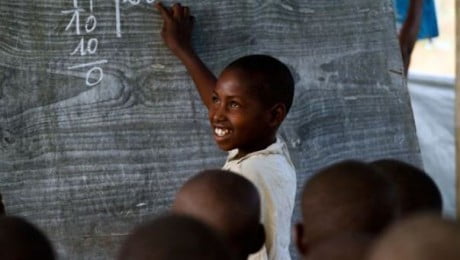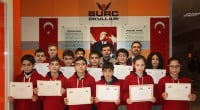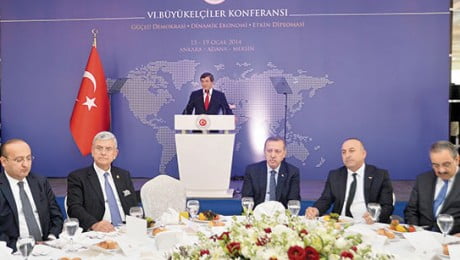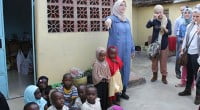Keyword: Hizmet-inspired schools

UNESCO Global Monitoring Report and Turkish Schools
The Turkish schools around the world offers practical perspectives and practices in redefining “the human” and his needs, reintegrating him into society, overcoming the physical and methodological obstacles to education and leading a robust performance in the path to global peace. Although the report correlates the education crisis at first glance with poverty and social background, education remains as the number-one problem, in a varying extent, in the developed countries as well. What needs to be done is to convey how the Turkish schools are tackling or minimizing many educational problems and, finally, to find out what aspects of the schools’ methods can apply to public schools.

The Gülen Movement and Turkish Soft Power*
The Gülen approach to education aptly demonstrates the group’s global strategy—Gülen movement schools are open to both Turkish migrants and citizens of host countries, and they avoid advancing a religious agenda. These schools aim to help Turkish migrants succeed in their host societies without losing sight of their Turkish roots, and at the same time they promote social unity by serving the needs of migrants and local students alike. The success of Gülen movement schools stems both from the success of the students (and the satisfaction of the parents) and from the prestige and goodwill they enjoy among local and political authorities for promoting integration and acting as a social mediator.

Pakistani Education Minister hails Turkish schools
The minister said the schools active in his country offer an excellent education model. “My fellow citizens have embraced these schools,” he said. Speaking of the long-established, brotherly relations between Turkey and Pakistan, “I can explain these heart to heart relations in many ways. We can feel the love from whoever comes here from Turkey. It is hard to put in words. This is brotherhood, this is friendship,” Rahman said.

Burc Schools achieve 13 medals in AMC 8
350 thousand students, in total, from 6000 schools around the world participated in this year’s AMC 8, recognized as the world’s most prestigious math contest involving middle schoolers. Among the participating Turkish schools, Adana Burc Schools’ students achieved a notable success by winning 13 medals. Turkey, South Korea, China, US, Canada, Russia and Taiwan constitute the award winning countries in the event.

Afghan education minister recommends Turkish schools in each province
Congratulating the Turkish teachers working at the schools in Afghanistan, Minister Wardak said that they were “highly respected.” He went on to praise the teachers who “leave behind their families and their cherished hometowns, leaving wonderful cities like İstanbul and Ankara and all that is near and dear to them to serve the Afghan nation and Afghan children.”

Hizmet movement and Kurdish question in Turkey
Through educational projects, the Hizmet movement helped to alter the social fabric of Turkish people who consciously or otherwise supported the institutional resistance of state and governmental bodies. Through dialogue and face-to-face encounters, Turkish people have had the chance to experience and feel the grievances of their Kurdish brothers and sisters and listen to their stories.

Ambassadors uneasy over Erdoğan’s orders concerning graft probe
Turkey’s ambassadors have expressed displeasure over Prime Minister Recep Tayyip Erdoğan’s remarks that called on them to “tell the truth” to their foreign interlocutors, saying that defending the government against corruption allegations in not the ambassadors’ business.

Principles of Gulen Inspired Schools – Boarding Schools
First and foremost, majority of Gulen inspired schools are boarding schools serving in the under-served parts of any given country. These schools intend to provide students with a safe educational environment free of distractions that may occur from, among others, dysfunctional families, economic instability, social and cultural problems. Lets analyze these factors one by one.

Turkish schools in Africa important for strong relations
The first-ever Rwandan ambassador to Turkey, Lt. Gen. Caesar Kayizari, has said that Turkish schools in Africa play an important role in strengthening relations between African nations and Turkey, adding that Turkey has a lot to offer Rwanda in terms of education. In the field of education, Turkish schools attract attention. In Rwanda’s capital, Kigali, Hope Kids Academy, an international Turkish school, was officially opened in February.























